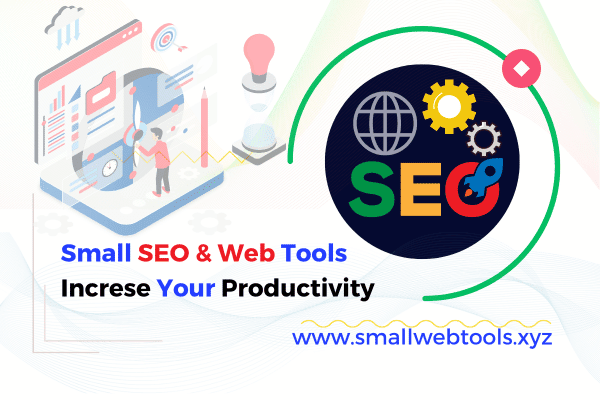Meta Tags Extractor
Enter a website URL to extract its meta tags for SEO and social media optimization.
Extracted Meta Tags
No relevant meta tags found.
Free Meta Tags Extracting Tool
In the realm of Search Engine Optimization (SEO), meta tags play a crucial role in how search engines understand and display your web pages. This guide provides a comprehensive overview of meta tags and how our Meta Tags Extracting Tool can help you analyze and optimize them for improved website visibility and performance.
What are Meta Tags?
Meta tags are snippets of HTML code that provide metadata (data about data) about a web page. They reside in the <head> section of an HTML document and are not displayed directly on the page itself. Instead, they offer information to search engines, browsers, and other web services.
Here's a breakdown of some of the most important meta tags:
- Title Tag (<title>): While technically not a meta tag, the title tag is arguably the most important element for SEO. It specifies the title of the web page, which is displayed in search engine results pages (SERPs) and browser tabs.
- Description Tag (<meta name="description">): This tag provides a brief summary of the page's content. Search engines often use this description as the snippet displayed in SERPs, influencing click-through rates.
- Keywords Tag (<meta name="keywords">): This tag was once used to specify keywords relevant to the page's content. However, major search engines like Google no longer use this tag for ranking purposes.
- Robots Tag (<meta name="robots">): This tag instructs search engine crawlers on how to crawl and index the page (e.g., noindex, nofollow).
- Viewport Tag (<meta name="viewport">): This tag is crucial for responsive web design, ensuring that the page renders correctly on different devices (e.g., desktops, smartphones).
- Content-Type Tag (<meta http-equiv="Content-Type">): Specifies the character encoding of the HTML document, typically set to "text/html; charset=utf-8".
Why are Meta Tags Important for SEO?
While their importance has evolved over time, meta tags still play a significant role in SEO:
- Title Tag: A well-crafted title tag is essential for attracting clicks from SERPs and signaling the page's relevance to search engines.
- Description Tag: An compelling description tag can improve click-through rates (CTR) from SERPs, driving more traffic to your site.
- Robots Tag: The robots tag is crucial for controlling how search engines crawl and index your site, preventing them from indexing irrelevant or duplicate content.
- Viewport Tag: Ensures your website is mobile-friendly, a critical ranking factor for Google and other search engines.
Introducing Our Meta Tags Extracting Tool
Our Meta Tags Extracting Tool simplifies the process of analyzing the meta tags of any web page. With this tool, you can quickly and easily retrieve the meta tags, allowing you to assess their effectiveness and identify areas for improvement.
Key Features of Our Meta Tags Extracting Tool:
- Instant Extraction: Quickly extract all meta tags from a given URL.
- Comprehensive Analysis: Retrieves title tag, description tag, keywords tag (if present), robots tag, and other relevant meta tags.
- Clear Presentation: Displays the extracted meta tags in a user-friendly format.
- Multiple URL Analysis: (If the tool supports it) Analyze meta tags for multiple URLs at once.
How to Use Our Meta Tags Extracting Tool:
- Enter the URL: Enter the URL of the web page you want to analyze.
- Click "Extract": Initiate the extraction process.
- View the Results: The tool will display the extracted meta tags and their content.
How to Optimize Your Meta Tags
Here are some best practices for optimizing your meta tags:
Title Tag Optimization:
- Keep it concise (ideally under 60 characters) to avoid truncation in SERPs.
- Include your primary keyword(s) early in the title.
- Accurately reflect the page's content.
- Make it compelling and click-worthy.
Description Tag Optimization:
- Write a clear and concise summary of the page's content (ideally under 160 characters).
- Include relevant keywords.
- Use a strong call to action to encourage clicks.
- Ensure it accurately represents the page's content.
Robots Tag Optimization:
- Use "index, follow" (which is also the default) to allow search engines to index the page and follow its links.
- Use "noindex, follow" to prevent a page from being indexed but allow search engines to follow its links.
- Use "index, nofollow" to allow a page to be indexed but prevent search engines from following its links.
- Use "noindex, nofollow" to prevent a page from being indexed and prevent search engines from following its links.
- Use "nofollow" to prevent passing link equity, even if the page is indexed.
Viewport Tag Optimization
- Ensure your pages are mobile-friendly by using ``
Benefits of Using a Meta Tags Extracting Tool
Using a Meta Tags Extracting Tool offers several advantages:
- Save Time: Quickly analyze meta tags without having to view the HTML source code.
- Identify Issues: Easily spot missing, duplicate, or poorly optimized meta tags.
- Improve SEO: Optimize your meta tags for better search engine visibility and click-through rates.
- Competitive Analysis: Analyze the meta tags of your competitors to identify best practices and opportunities.
Start Optimizing Your Meta Tags Today!
Meta tags are an essential aspect of on-page SEO. Our Meta Tags Extracting Tool provides a simple and efficient way to analyze and optimize your meta tags, helping you improve your website's visibility, attract more traffic, and achieve your online goals.
Ready to unlock your website's potential? Try our free Meta Tags Extracting Tool now!

.jpg)


Don't spam here please.